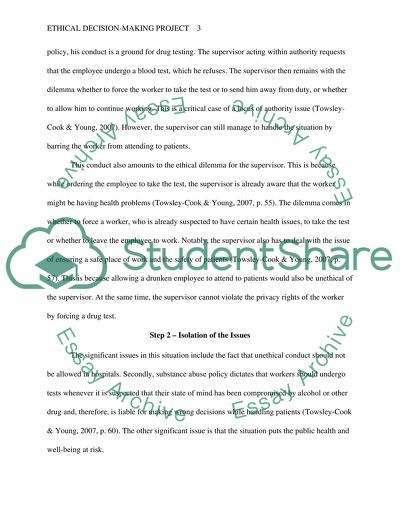Cite this document
(“Ethical Decision-making project Essay Example | Topics and Well Written Essays - 2000 words”, n.d.)
Ethical Decision-making project Essay Example | Topics and Well Written Essays - 2000 words. Retrieved from https://studentshare.org/law/1620936-ethical-decision-making-project
Ethical Decision-making project Essay Example | Topics and Well Written Essays - 2000 words. Retrieved from https://studentshare.org/law/1620936-ethical-decision-making-project
(Ethical Decision-Making Project Essay Example | Topics and Well Written Essays - 2000 Words)
Ethical Decision-Making Project Essay Example | Topics and Well Written Essays - 2000 Words. https://studentshare.org/law/1620936-ethical-decision-making-project.
Ethical Decision-Making Project Essay Example | Topics and Well Written Essays - 2000 Words. https://studentshare.org/law/1620936-ethical-decision-making-project.
“Ethical Decision-Making Project Essay Example | Topics and Well Written Essays - 2000 Words”, n.d. https://studentshare.org/law/1620936-ethical-decision-making-project.


